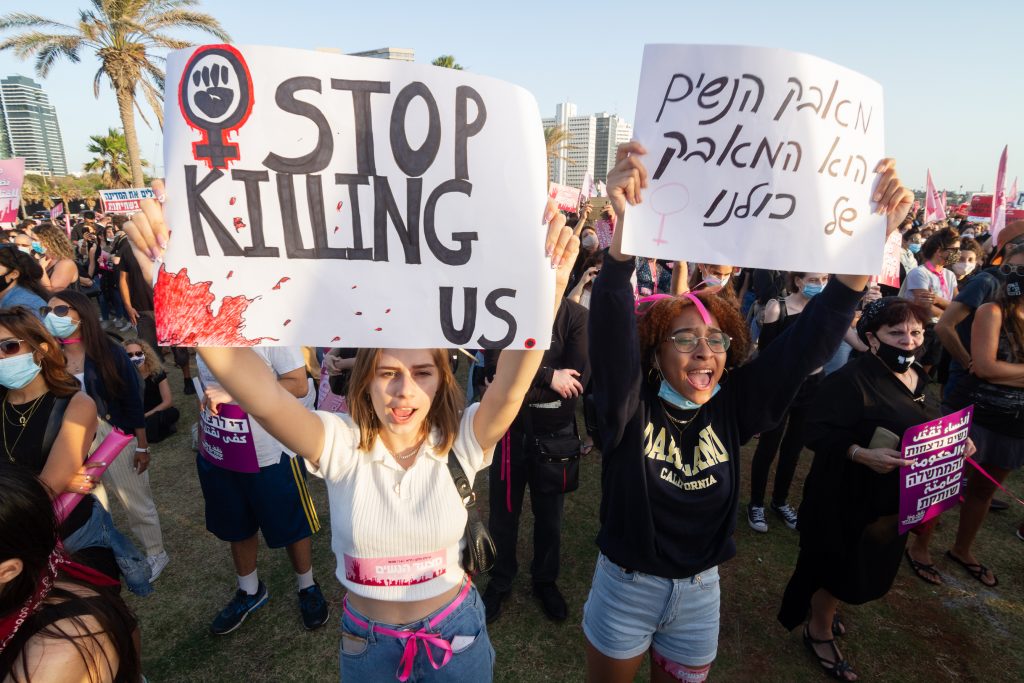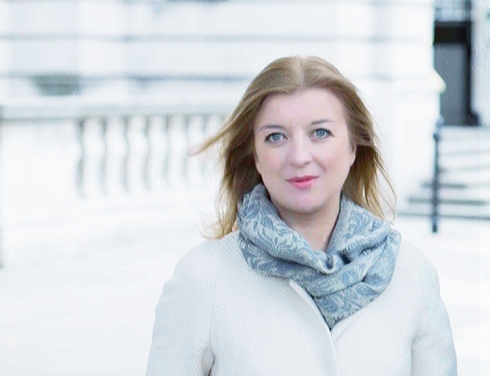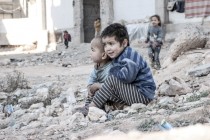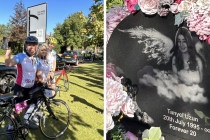One year has flown by since 25 November 2019. Exactly 365 days since we demonstrated globally to raise awareness of violence against women and girls, and what has changed since that day? Nothing!
Nothing has changed, and unfortunately with the Covid-19 pandemic with lockdowns and quarantine days, the reality is that violence against women and girls has moved from a state of ‘emergency’ to a ‘critical emergency.’
Countries worldwide with already shockingly high levels of domestic violence have reported dramatic increase in cases during lockdown. The sheer scale of the violence during mandatory quarantine days is scary to read.
Whilst the world was trying to come to terms with what was happening with this pandemic and was trying to cope with the uncertainty surrounding each other, women and girls who should have been safe and protected in their homes were being sexually abused, mentally tortured, physically beaten, and some killed by their fathers, brothers, husbands and partners.
During this time some women were strangled or knifed to death in their own homes. Cases of hopeless and desperate situations in which women were unable to escape to report the abuse and the violence they were experiencing, nor find refuge away from their abuser.
In Italy, we witnessed the early impact of the pandemic with a huge death toll. We became glued across the globe to our television and smart phone screens, checking the ever-increasing number of Covid-19 infections and deaths.
Alongside this in Italy, there was also a 74.5% increase in calls about in domestic violence in a single month, from March to April of this year. In 28% of the reported cases, women were making their first call for help.
It was not only in Italy where the cases of domestic violence against women increased. It has been reported that domestic abuse cases also doubled in Lebanon, Brazil and Malaysia, and tripled in China.
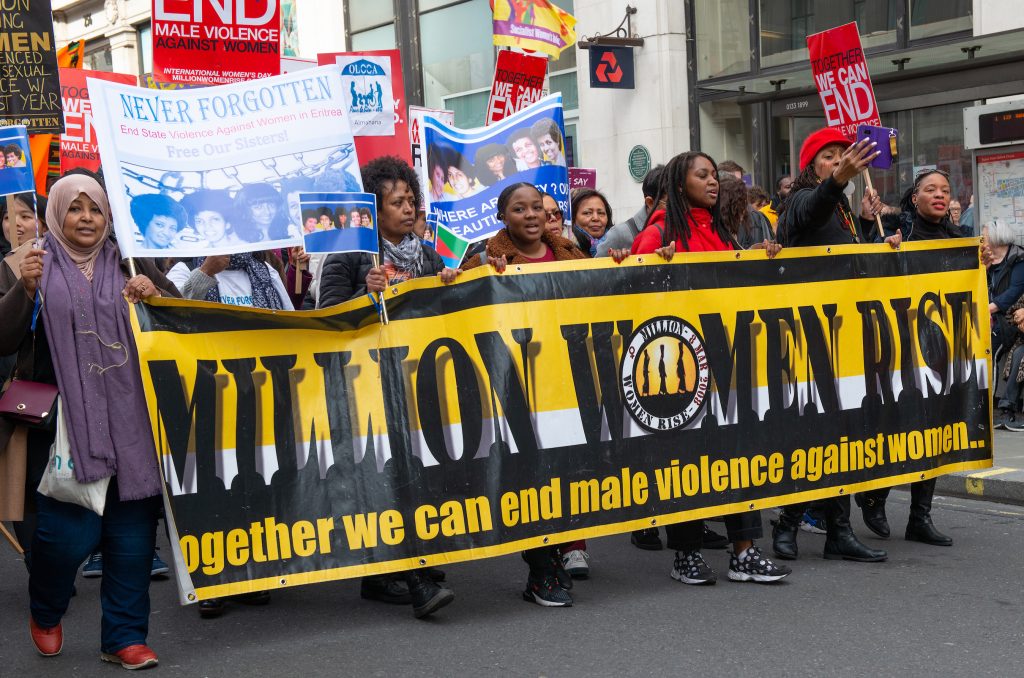
Spain witnessed an increase of 18%, France 36%, and Turkey 75% of domestic violence. A media push in the UK to raise awareness of how women can access help led to national domestic abuse charity ‘Refuge’ report a staggering 700% increase in visits to their website in a single day. Refuge also reported a 25% increase in calls to the National Domestic Abuse Helpline during the lockdown.
Violence against women and girls happens everywhere, in all cultures, and also takes many different forms. We already know that one in three women in Europe experience physical or sexual violence.
Women are targeted on the streets, in universities, workplaces and online they experience verbal and physical abuse, and misogyny and other forms of hate speech. This alarming trend is present in the other continents.
Honour killings, child marriage and female genital mutilation (FGM) unfortunately still continue in many countries.
At least 200 million women and girls are forced to undergo the barbaric act of female genital mutilation in parts of Africa, the Middle East and Asia. Through migration, these issues are now present in Europe. According to campaign group End FGM European Network, Britain has the highest number of women living with the consequences of FGM – some 137,000 survivors, followed by 125,000 in France.
Annually, 5,000 women and girls are reported to be murdered worldwide under the pretext of ‘honour’ killing. The real numbers are likely to be much higher, as many ‘honour’ killings go unreported.
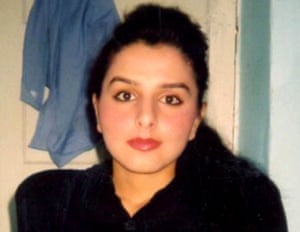
These murders occur in Britain too, as we saw in the recently televised drama Honour depicting the brutal death of 20-year-old Banaz Mahmod, a Briton of Iraqi Kurdish heritage.
According to Honour Based Violence Awareness (HBVAN), there are between 12 and 15 honour killings every year. That means each month at least one woman is killed in Britain on the basis of ‘honour’.
Honour of what? What is honour? Whose honour is it?
The Collins dictionary defines ‘honour’ as doing what you believe to be right and being confident that you have done what is right. That means thousands of women are killed each year around the world because men think these killings are justified. That murdering women in the name of ‘honour’ for men is the ‘right thing to do’ and ‘it is their right’.
Whether a woman loses her life to an ‘honour’ killing or another type of violence, there is no doubt that in nearly all of these cases men are responsible for the murders. In Turkey alone 474 women were killed in 2019, an increase of 34 deaths compared to the previous year.
The trend tragically continues in to 2020, with July one of the worst months so far: 36 femicides, all perpetrated by men.
Turkey was the first country to agree with the convention against gender-based violence and domestic violence. Known as the ‘Istanbul Convention’ and designed by the Council of Europe 2011, this human rights treaty sets out ways to protect women legally and to prosecute offenders. Women in Turkey are working tirelessly to protect and keep this convention, while others lobby the government in Ankara to drop such rights, despite the shocking levels of violence against women in the country.
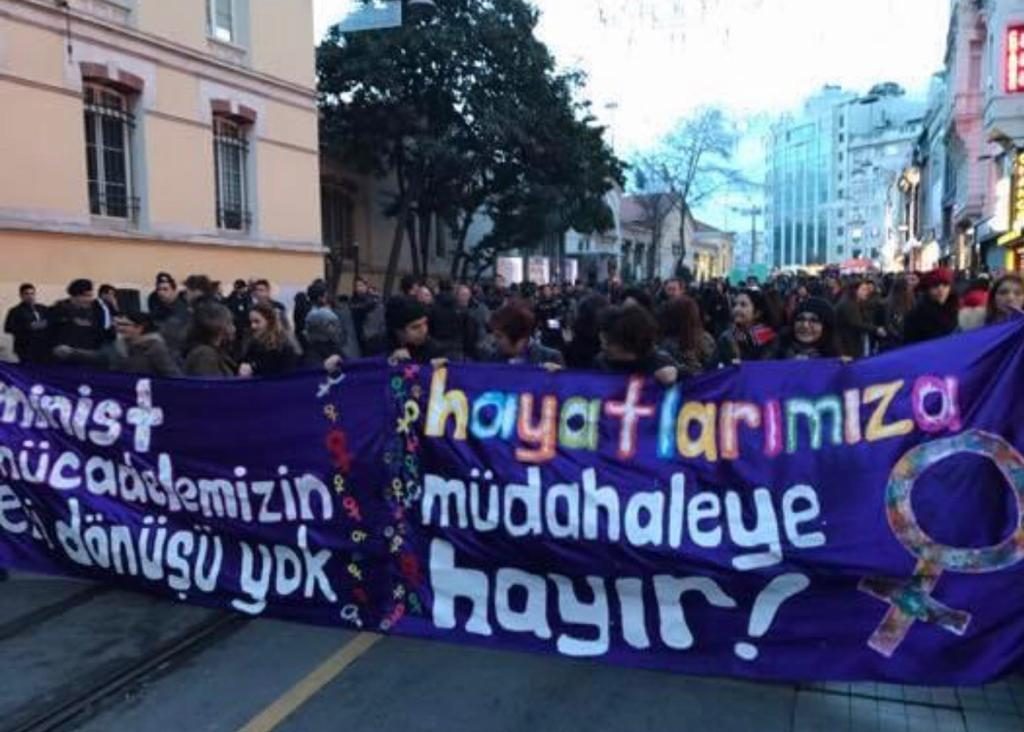
In the battle to eradicate violence against women and girls, most importantly it is for men to take the responsibility to condemn and reject openly all such acts. We must all be actively working and campaigning together locally, nationally and internationally to create a safer environment for women and girls.
A commitment from government is essential to strengthen the legal frameworks required to tackle this issue, which can improve through better collaboration with national and international institutions. It’s the duty of those in authority to co-operate with civil society and NGOs.
Women empowerment has to be central in formulating effective responses, such as policies and legislation to help close the gender pay gap, which in turn facilitates an equal role in the economic growth and sustainable development of communities.
We say eliminate violence against women and girls, so women and girls can play an equal part in the democratic life and across all parts of society, and feel free and safe from harm.
To enable this we women should not be stopped or trolled online for raising our valid concerns on these urgent issues.
That’s why I have asked some wonderful women around me to share their thoughts on the ‘International Day for the Elimination of Violence against Women and Girls’, which you can read below.
NO to violence and murder against women and girls!
I am
A woman
My body
My life
And my freedom
Belongs to me
Nobody can interfere!
-By S. Eren-Nijhar-
GRACE QUANSAH (aka ‘AKUBA’)
Poet, Writer and Director of WAPPY (Writing, Acting and Publishing Project for Youngsters)
Let’s End All Violence and Institutional Abuse Against Women and Girls Now!!
Violence against women and girls is sadly a historical, and universal phenomenon. Like the current coronavirus pandemic sweeping around the world, it’s causing tidal waves of deaths, destruction, depression and degradation.
Alarmingly, as the UN reports, since the outbreak of COVID-19 various sociological data and reports have found that this global evil, particularly domestic violence, has worsened. Global activists/change-makers are combating a ‘shadow pandemic’ that has been germinating amidst the COVID 19 crisis.
Lockdown measures designed to keep us safe and ‘COVID-secure’ are being exploited by domestic violence perpetrators. Boys and men are of course victims too, however, as noted by Women’s Aid, women tend to experience sustained physical, psychological or emotional violence, which results in injury and death.
From a personal standpoint, I fervently add my voice to collective calls for a day of action to eliminate gendered domestic violence.
I’m shouting out loud, particularly, for African-descended girl victims like Victoria Climbié, my cousin, who was killed by her step aunt, Marie Therese Kouao and her boyfriend Carl Manning (1999). The abuse of Victoria was preventable had she not been a victim of institutional discrimination and violence by several protection agencies. Let’s end all such abuse Now!!!
KULWANT SINGH
Journalist
Our collective shame on gender based violence, by now, really should have seen this issue as one in diminishment. Contrarily, the opposite is the case. The UN described the worldwide increase in domestic abuse as a “shadow pandemic” alongside Covid-19.
Here in the UK, Refuge – our largest domestic abuse charity – reporting a 700% increase in visits to its website in a single day shows that we’re a million miles from reducing the physical and emotional horrors experienced in gender based violence.
With this in mind, I for one feel a failure, individually and collectively, for not participating alongside admirable people in this space, who work hard, striving to make a difference.
Without wishing to be trite, sky high statistics, hiding sad truths, veiled deceits and pain, crushing collusion and silence clearly need to be tackled with much deserved strength. Horrific casualty warrants profound change in whatever way we can, from campaigning and volunteering, to fundraising and donating, let’s help.
As with all important change, we need to unite; enlisting our sons, husbands, and brothers has never mattered more.
BARIŞ CELİLOĞLU
Actor, director, and director of Theatre East N Bull
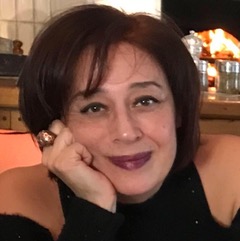 I am an actor and a stage director, and I have always wanted to do a project about domestic violence and femicide because I have always been very sensitive about this issue since my youth.
I am an actor and a stage director, and I have always wanted to do a project about domestic violence and femicide because I have always been very sensitive about this issue since my youth.
When I read the news about the escalating murders of women by their partners during lockdown, it shook me badly to imagine that those women were stuck at home with their abusers.
I realised that developing a digital theatre project that addresses this issue was even more essential during this period as a female director, and I conducted extensive research throughout April on the issue. By the end of April, I brought together writers from eight countries and developed my digital project by holding Zoom meetings with them.
I included writers and actors from Britain, Turkey, Greece, Spain, Russia, Italy, Poland and Australia by actively orchestrating the writing process of monologues for ‘Lockdown, Locked In’, as well as initiating the Zoom rehearsals with 27 actors from these eight countries.
The project is still going on and taking shape slowly, but surely. I am very passionate about this project because domestic violence is a huge issue that is still going on, and it is not tackled enough or at all by the governments of some of these countries.
I hope to make this issue more visible and also hopefully move the policy makers into action about it.
VAL STANSFIELD
Employment Rights Adviser
The second lockdown is once again making women and children vulnerable to coercive control and both physical and psychological violence.
There needs to be a fundamental change to the way government addresses this issue. Funding for more safe shelters needs to be made available urgently. Prosecutions need to increase, with appropriately serious sentences for perpetrators.
JELENA MAKAROVA
It is unacceptable that in this day and age millions of women and girls across the world still suffer violence. During the pandemic violence against women and girls dramatically increased. As Covid-19 lockdowns took place globally, many already endangered, suffering women ended up in the most desperate of circumstances and unsafe environments.
I am outraged to learn that no greater attempt has been made to protect women and girls from violence during the pandemic.
I sincerely hope that the governments of the world urgently address the issue and take appropriate actions to provide vulnerable women and girls with greater support and protection. I also believe that in the era of a global movement for female equality and empowerment there is no place for violence against them.
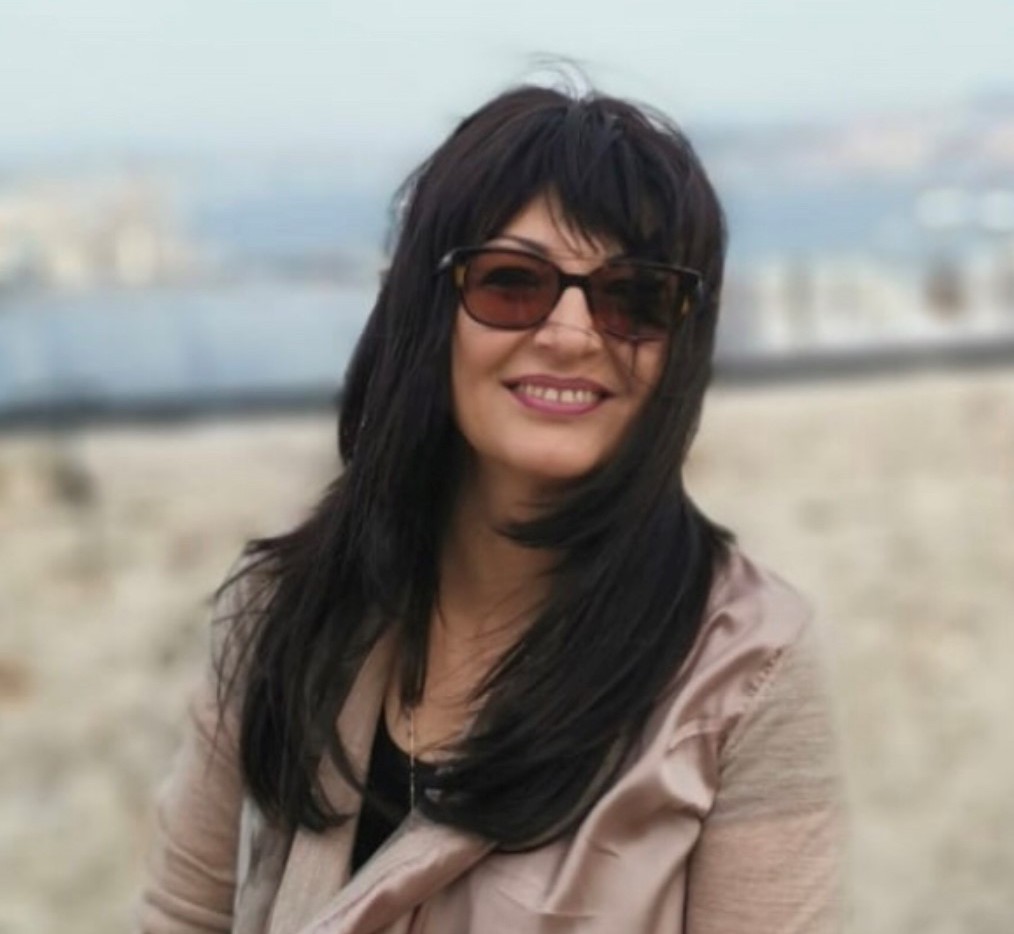
If you are in the UK and affected by any of these issues, you can contact Refuge for help. Visit their website, refuge.co.uk They also have a freephone 24-Hour National Domestic Abuse Helpline: 0808 2000 247
Semra Eren-Nijhar is an author, sociologist, documentary film maker & policy consultant on diversity, migration, Turkish people living in Europe and the Executive Director of SUNCUT.
Main photo, top, of a “Women’s March” – a demonstration against violence against women in Tel Aviv-Yafo, Israel, on June 01, 2020. Photo © Roofsoldier/ shutterstock

